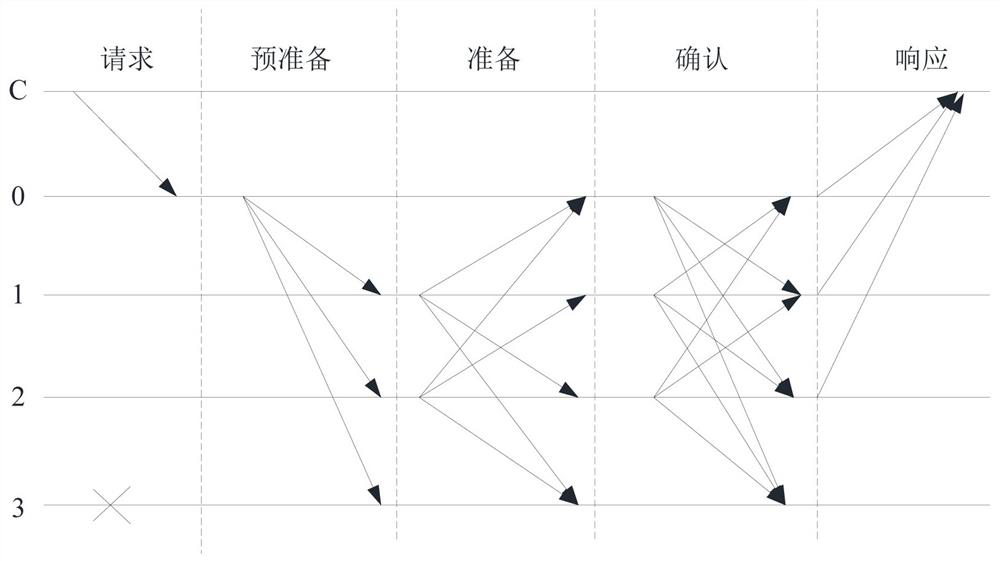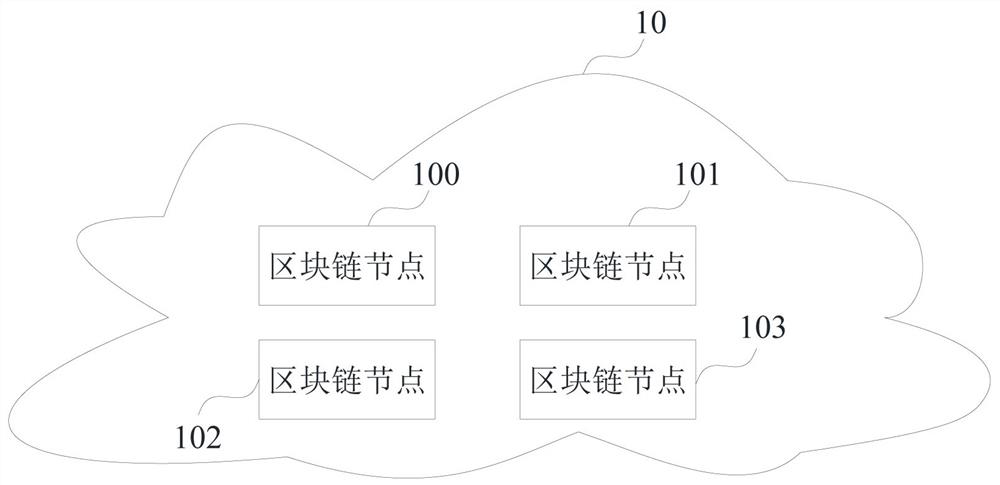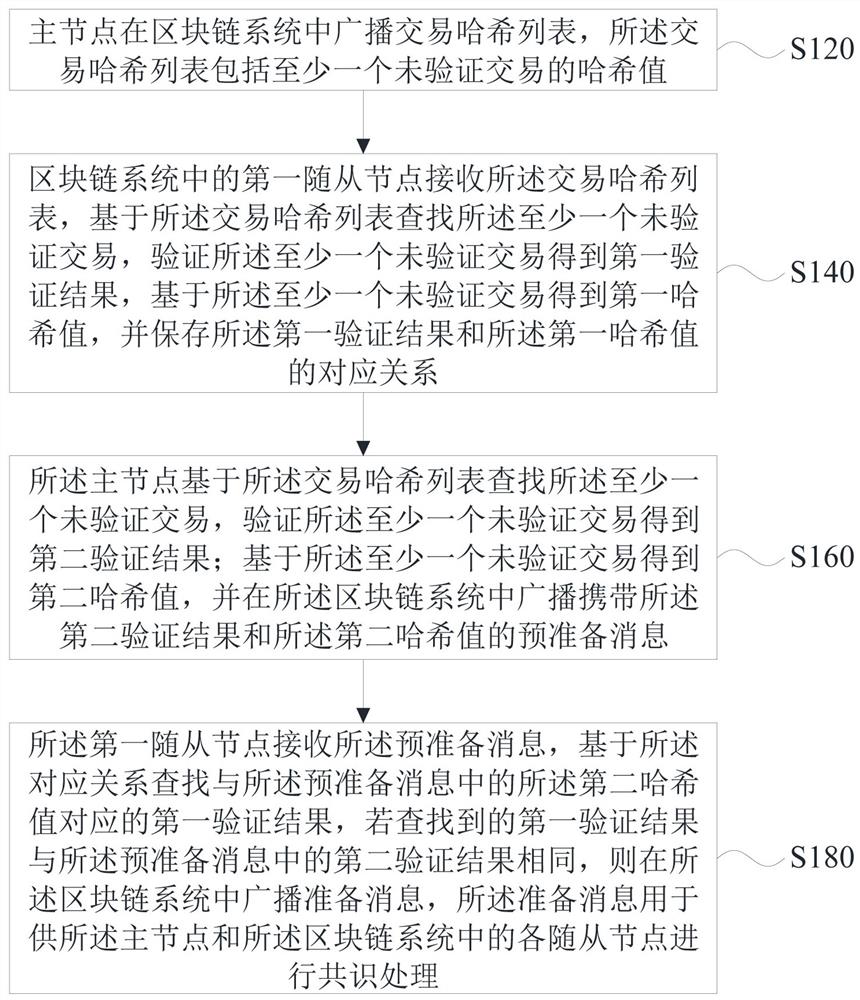Consensus method, device and blockchain system
A blockchain and consensus technology, applied in the blockchain field, can solve problems such as poor consensus efficiency, achieve the effect of improving consensus efficiency and speeding up the consensus process
- Summary
- Abstract
- Description
- Claims
- Application Information
AI Technical Summary
Problems solved by technology
Method used
Image
Examples
Embodiment Construction
[0042] After the Byzantine generals problem was raised, many algorithms have been proposed to solve the problem. These algorithms are collectively referred to as Byzantine Fault Tolerance (BFT), and the PBFT algorithm is a typical Byzantine Fault Tolerance algorithm.
[0043] In one example, a Byzantine system includes nodes 0, 1, 2, and 3. Among them, node 3 is a Byzantine node, and a Byzantine node can be understood as a malicious node or a faulty node. Nodes 0, 1 and 2 are non-Byzantine nodes. Each node in the Byzantine system can be called a replica (replica node), which is used to provide replica replication services. Each round of consensus in the Byzantine system corresponds to a view, and each view includes a master node and multiple slave nodes. A round of consensus includes request (request), pre-prepare (pre-preparation), prepare (preparation), commit (confirmation), and reply (response). Combine below figure 1 , to introduce the PBFT consensus process.
[004...
PUM
 Login to View More
Login to View More Abstract
Description
Claims
Application Information
 Login to View More
Login to View More - R&D
- Intellectual Property
- Life Sciences
- Materials
- Tech Scout
- Unparalleled Data Quality
- Higher Quality Content
- 60% Fewer Hallucinations
Browse by: Latest US Patents, China's latest patents, Technical Efficacy Thesaurus, Application Domain, Technology Topic, Popular Technical Reports.
© 2025 PatSnap. All rights reserved.Legal|Privacy policy|Modern Slavery Act Transparency Statement|Sitemap|About US| Contact US: help@patsnap.com



